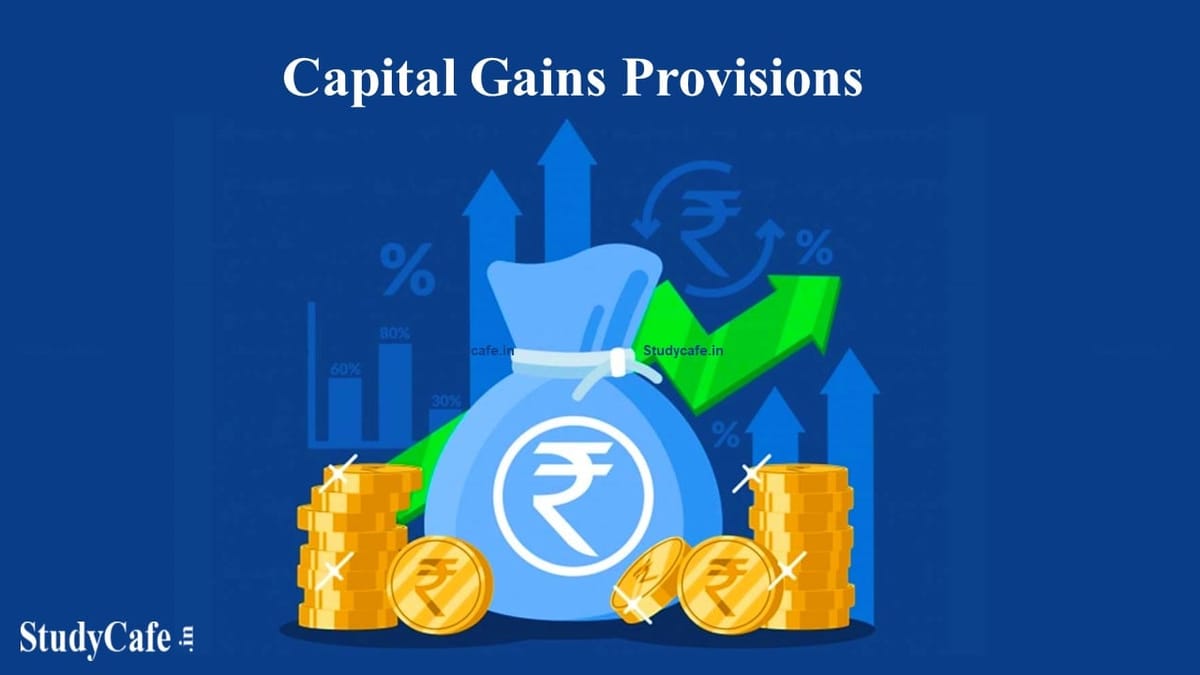CA Balwant Jain | Jan 25, 2022 |

BUDGET 2022: Suggestion for Budget on Capital Gains Provisions
The Income Tax Provisions about various aspects capital gains provisions like holding period requirement and rate of tax on different category of capital gains have undergone changes over the years. The piecemeal changes have resulted into some apparent inconsistencies in the capital gains taxation area. I request the finance minister to use the budget time to correct these inconsistencies. Let us discuss.
An Individual tax payer who is resident of India is entitled to get a rebate of upto Rs. 12,500/- against his tax liability provided his total income does not exceed five lakhs. This rebate is available against tax liability of any nature but for strange reasons is not available against tax on long term capital gains on listed equity shares or equity oriented schemes. In my opinion this is illogical to grant rebate for tax on long term capital gains of any other asset as well as short term capital gains on equity products while denying it on tax on long term capital gains on equity products. Ideally the rebate should be available on long term capital gains on equity products to promote equity cult and investment in equity products for long term rather than speculative transaction in equity products. The government wants to promote long term investments is evident from the lower tax rate applicable on long term capital gains as compared to short term capital gains. I feel this inconsistency has crept in due to ignorance and needs to be corrected.
You have to pay tax at your slab rate on short term capital gains of capital asset other than listed equity shares and equity oriented schemes but short term capital gains on listed equity shares and equity oriented schemes are taxed at flat rate of 15% irrespective of your slab rates. The rate of 15% is supposed to be a concessional rate against the highest tax rate of 30%. But it also causes absurd situation in case you opt for new scheme of taxation where the base rate of 5% is applicable for income between income of 2.50 lakhs to 5 lakhs and tax at 10% is payable for income between 5 lakhs and 7.50 lakhs: both the rates are lower than tax rate on short term capital gains on equity products. Even for those under old tax regime tax rate of 5% is applicable for income between 2.50 lakhs and 5 lakhs. A flat tax rate of 15% on short term capital gains on equity products is higher than the rate of 5% applicable for income between Rs.2.50 lakh and 5 lakhs. The rate of 15% on short term capital gains on such capital asset is supposed to be a concessional rate of tax but for the taxpayers at the bottom the 15% tax rate acts punitive. The government should remove this anomaly by providing that the tax on short term capital gains on these equity products shall not be higher than the slab rate applicable to the taxpayer.
Historically the holding period for making a capital asset as long term was 36 months for very long time. The period was subsequently modified starting from 1-4-1987 for selected class of capital asset from time to time. So presently your investments in listed shares and equity mutual funds become long term after 12 months whereas the holding period for debt products is 36 months to avail the benefits associated with long term capital gains. Likewise, the holding period for an asset like land and building which is supposed to be bought for very long time is reduced to 24 months.
So against the requirement of 24 months for land and building, the holding period requirement for relatively liquid assets like debts fund, bonds, gold, gold ETF etc. is 36 months. This looks irrational in my opinion. I feel the lower holding period requirement of 24 months for non-financial assets like land and building promotes speculation in these assets rather than channelling investment in this sector. On the contrary for financial products like bonds, debts funds, gold ETF etc. the holding period requirement should be brought down to 24 months if not 12 months to make the holding period requirement logical and rational. Moreover, based on the nature of the capital asset the holding period requirement for non-financial assets like land and building should be raised to minimum 36 months if not 60 months.
I am sure the finance minister will make the capital gains provision rational and logical by removing these anomalies in the existing provisions.
Writer is a tax and investment expert and can be reached on [email protected] and @jainbalwant on his twitter handle.
In case of any Doubt regarding Membership you can mail us at [email protected]
Join Studycafe's WhatsApp Group or Telegram Channel for Latest Updates on Government Job, Sarkari Naukri, Private Jobs, Income Tax, GST, Companies Act, Judgements and CA, CS, ICWA, and MUCH MORE!"